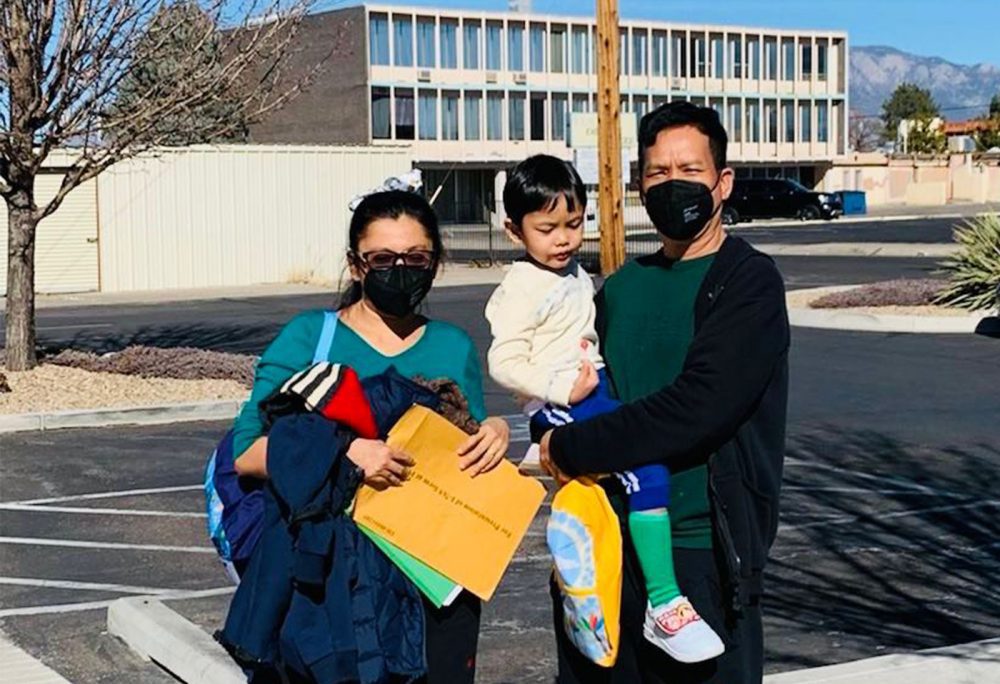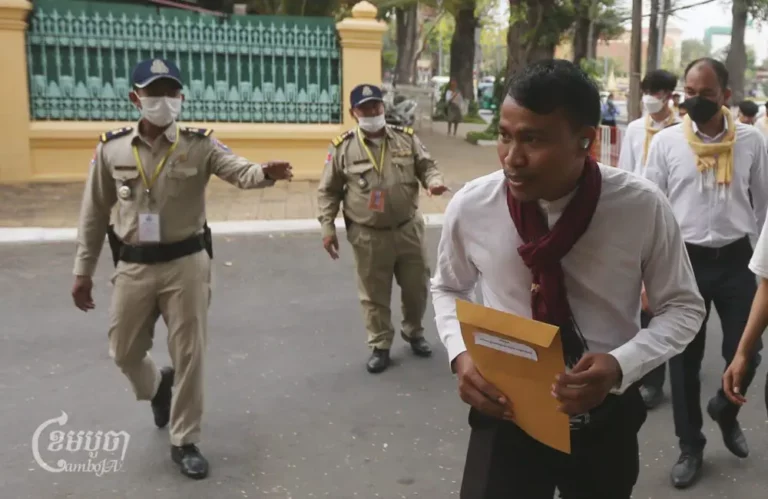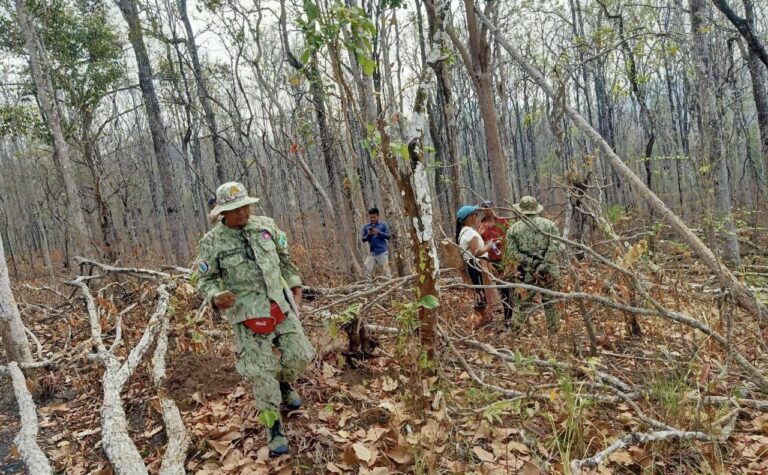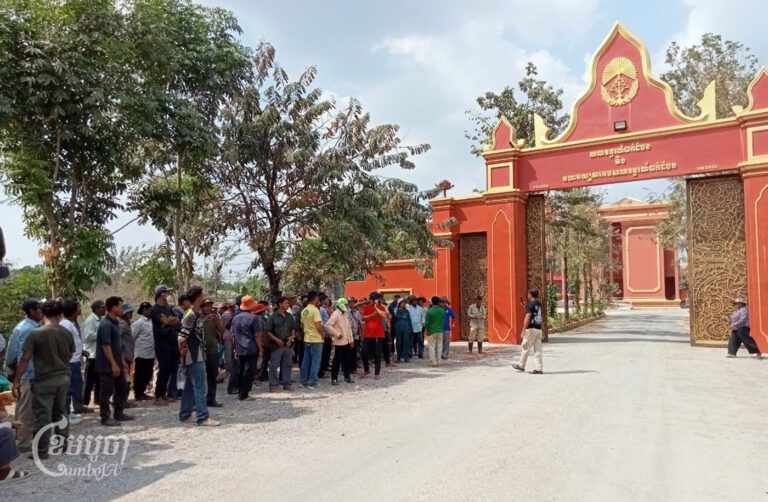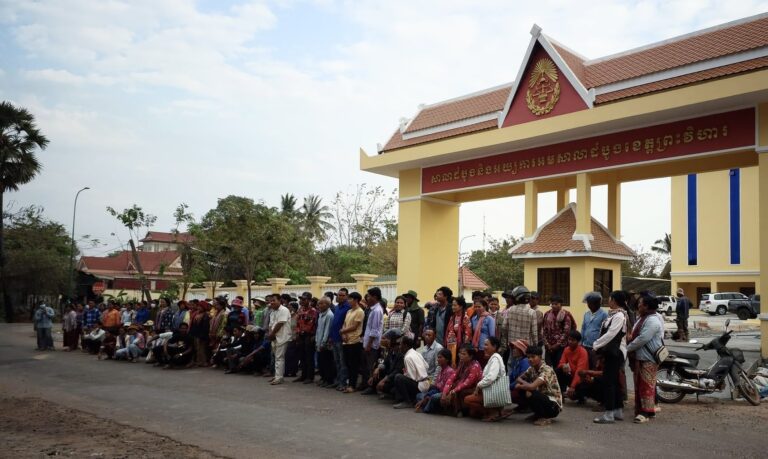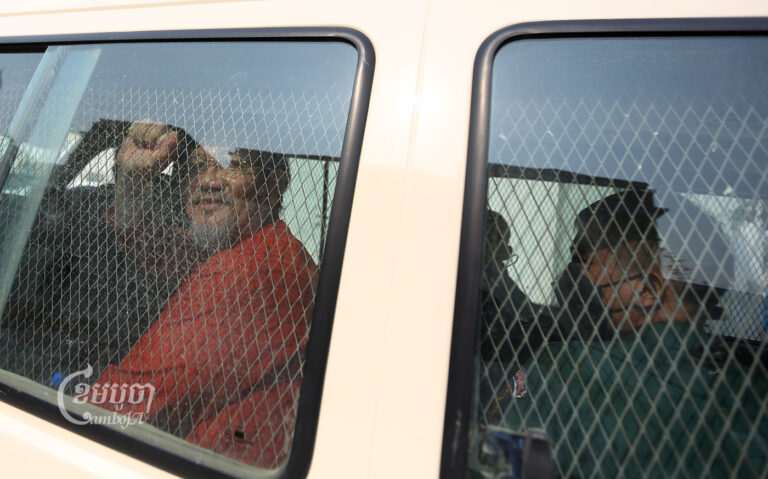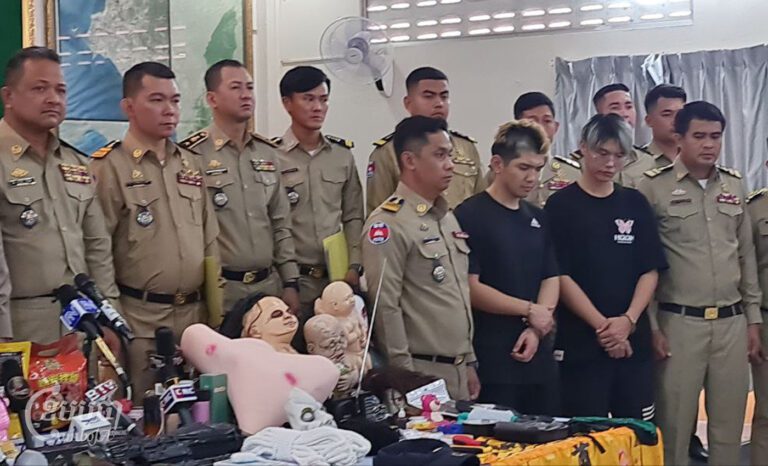A Cambodian fixer for a foreign media team has won political asylum in the U.S. after being imprisoned in 2018 for his work on a documentary about alleged sexual trafficking of underage girls in the kingdom.
Rath Rott Mony had worked with a team from the Russian state media outlet RT, for which he sourced interviews with mothers who told reporters they had sold their daughters’ virginity. Police later questioned those mothers, who denied their on-camera testimony and claimed Rott Mony had paid them for their comments.
After that investigation, the Phnom Penh Municipal Court convicted Rott Mony of incitement to discriminate. He was released from prison in December 2020, and about a year later in February 2021 joined his family living as refugees in Thailand.
This February, the family relocated to the U.S. state of New Mexico. Though Rott Mony declined comment to CamboJA, his wife, Long Kimheang, spoke to reporters last week via social media. Though she said her husband is trying to maintain a low profile for now, Kimheang has been vocal about the family’s challenges since Rott Mony’s arrest. Now, she’s optimistic about their future.
“My family and I fled to the United States because we were still concerned that we couldn’t do our jobs in Cambodia because the court has not dropped charges against my husband,” Kimheang said.
Kimheang told reporters in 2019 that she’d left Cambodia for Thailand in May of that year. She claimed at that time she’d been threatened with arrest by an unnamed Interior Ministry official, who Kimheang said was trying to stop her from protesting for her husband’s release.
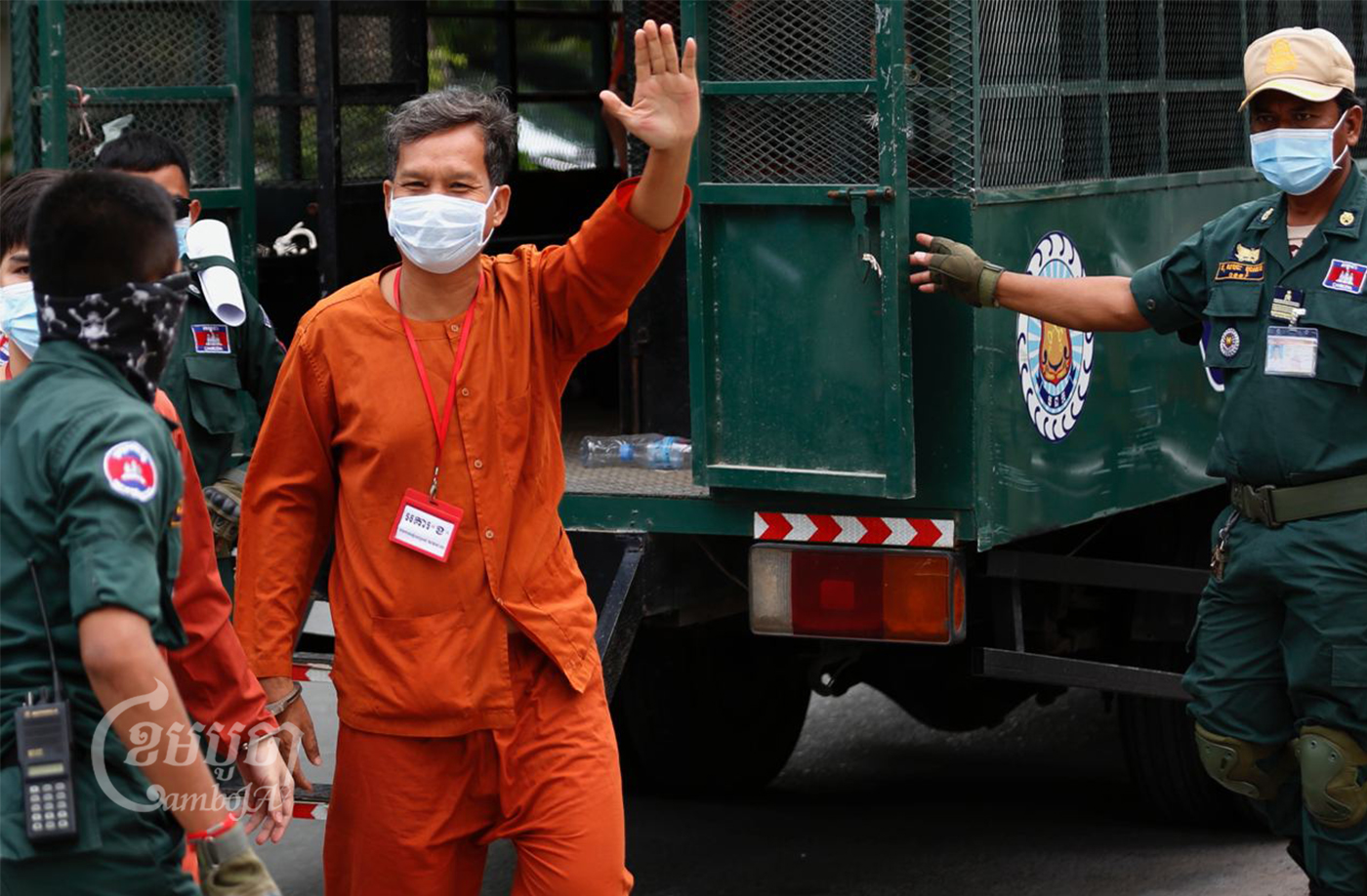
After arriving in the U.S. last month, Kimheang said the family is now working with a resettlement agency organization to process documentation to access public services and find jobs. She told CamboJA the family had received “welcome money” to cover daily expenses for their first four months, in addition to a package of $600 per month that should run for the next five years.
Rott Mony is now working a part-time job in a wine store in New Mexico, as Kimheang waits to receive a Social Security Number from the government in order to get a job.
She said her son will have school enrollment at the end of March.
Interior Ministry spokesman Khieu Sopheak declined comment, referring CamboJA to a statement from the National Police that alleged Kimheang had “incited Khmer citizens to stop supporting the government,” in an interview she’d given last Sunday to U.S.-backed media outlet Radio Free Asia.
“[We] consider this interview to have been planned with ill-intent, to cause confusion and incitement to discriminate against the government in gaining politics, and to have caused instability in Cambodia,” the National Police stated.
Kimheang had spoken in the interview about her husband and their arrival to the U.S., and had criticized the Cambodian government’s restrictions on speech.
The Long Road to Asylum
Though the family’s future seems brighter now in the U.S., Kimheang said they had struggled during their time in Thailand.
“The Thai government hasn’t provided enough rights to refugees in Thailand to have full freedom of movement,” she said.
“When we walked anywhere, we needed to have enough documentation, such as a passport or work permit. Sometimes immigration police checked our documents, so we continued to face arrest or being sent back to Cambodia – even if we showed the UN’s card, that was our challenge.”
Though the UNHCR had officially recognized and documented her family as refugees, Thailand is not a party to the 1951 Refugee Convention and has no specific legal framework to accommodate refugees and asylum-seekers.
As such, these people may be treated as illegal aliens. According to a UNHCR statement, if families such as Kimheang’s are found without a valid visa, they may be subject to arrest, prosecution and detention on immigration charges, regardless of their status with the UN.
“When we sought health service by showing a UN card, they didn’t recognize it, they required a passport, while our passport expired,” Kimheang said.
“My son and I only stayed inside the house. We were afraid to walk out freely, and we often went out only when there was an urgent issue.”
She said her husband had crossed into Thailand illegally in 2021 with migrant workers because his passport and Cambodian identification card had been revoked. He’d tried to make that crossing in December 2018, Kimheang said, before his imprisonment.
However, police had arrested him then and sent him back to Cambodian authorities, barring him from returning to Thailand for five years.
Three months after he made it back into Thailand, he was granted refugee status by the UNHCR. But he still remained in hiding, afraid of being arrested by immigration police.
Soeng Senkaruna, a senior investigator with the rights group ADHOC, said the government always defends itself from critical comments. He saw that trend playing out in the case against Rott Mony and said he was glad the family had received asylum in the U.S.
“As we have known the government always rejects it when they [victim] have said that something happened to themselves or involves the situation in Cambodia,” Senkaruna said.
“His case was an injustice from the beginning,” he added, speaking of Rott Mony.


